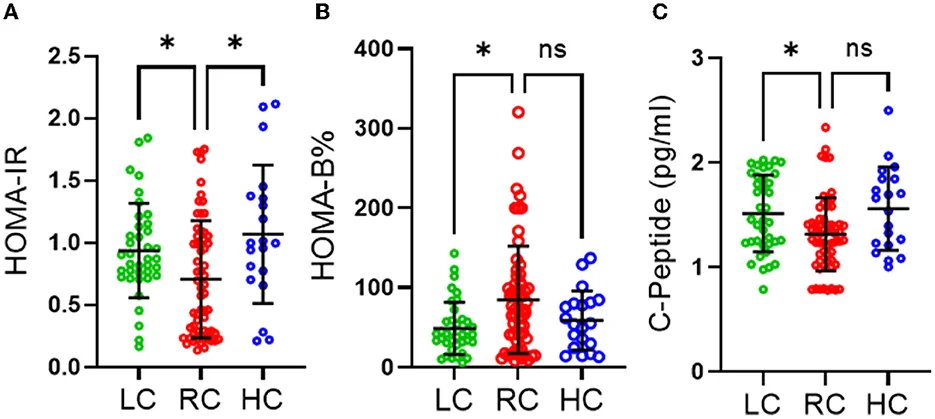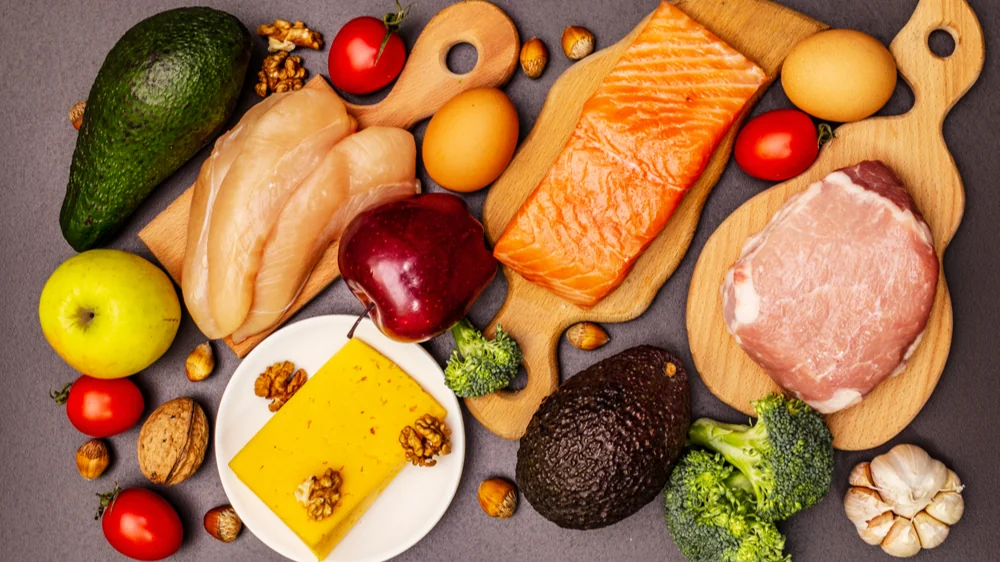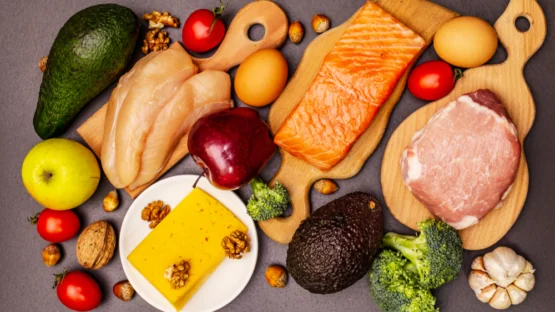Scientists have published a new study where they suggest that low carbohydrate consumption is significantly associated with increased insulin resistance in healthy, lean people [1].
Benefits and risks
Diet is a powerful mediator of health and longevity. While there is broad consensus on what dietary components are dangers to be avoided, such as highly processed foods, there is little consensus on what the healthiest diet is. For example, while most guidelines recommend getting about half of all our calories from carbohydrates, various types of low-carb diets have become very popular.
Ketogenic diets in particular have attracted a lot of scientific attention, with studies showing that they can be highly effective for weight loss but are also accompanied by risks like elevated cholesterol levels and lower nutrient diversity [2].
Since obesity is a major driver of various diseases, such as diabetes and cardiovascular disease, undergoing a period of low carbohydrate intake for the sake of weight loss might be a reasonable thing to do. However, it is still not clear what the net impact of low-carb diets is on lean and healthy people.
Moderate carb intake wins
For this new study, the researchers recruited 120 healthy participants with normal BMIs. The participants documented their diets for a week while wearing accelerometers to record their physical activity. The participants were then divided into three groups: the low carbohydrate intake group (LC) consisted of those who received less than 45% of their calories from carbohydrates, the recommended carbohydrate intake group (RC) received 45% to 65%, and the high carbohydrate intake group (HC) received more than 65%.
There were no statistically significant differences between groups in mean age (which hovered around 30), physical activity, blood pressure, BMI, waist circumference, fat percentage, or calorie intake, which was monitored but not restricted.
While some metabolic parameters, such as triglycerides and total and HDL cholesterol levels, were largely similar across the three groups, important differences emerged. Low carbohydrate intake was found to be significantly correlated with dysregulated glucose homeostasis. The researchers used homeostasis model assessment (HOMA) indices to measure insulin resistance (HOMA-IR) and the function of insulin-producing pancreatic β-cells (HOMA-β). They also measured levels of C-peptide, another marker of insulin biosynthesis and insulin resistance.
In all those markers, the RC group significantly bested the LC group. The RC group was also ahead of the HC group, although the difference was statistically significant only for HOMA-IR. The researchers note that with only 20 people in the HC group, the statistical power was insufficient. Given the clear trend, with more participants, the gap between the two groups might have reached statistical significance for all three markers. Higher HOMA-IR scores were mainly driven by elevated plasma insulin levels. The RC group was also characterized by much lower fasting blood glucose levels than the two other groups.

Acidosis and inflammation
As ketone bodies (molecules produced in ketosis and used as alternative fuel when glucose is scarce) are known to disrupt the acid-base balance [3], researchers searched for signs of metabolic acidosis. As expected, several acidosis markers were significantly elevated in the LC group compared to the two other groups.
Previous studies have suggested a relationship between metabolic acidosis and inflammation [4]. The researchers ran a panel of inflammation-related markers and found that the levels of several pro-inflammatory cytokines, including IL-6 and IL-17, were significantly elevated in the LC group compared to the RC group and were also correlated with C-peptide expression. IL-6 in particular is a potent driver of insulin resistance and type 2 diabetes [5].
Conclusion
This study is one of the first to investigate the metabolic effects of carbohydrate consumption on lean, healthy, and relatively young people. While for all groups, the measured markers remained in their normal ranges, there was a significant and worrying trend towards insulin resistance among people who consumed low amounts of carbohydrates. The same might have been found true for overconsumption of carbohydrates, but for the lack of statistical power.
Importantly, a large recent study showed a similar U-shaped relationship between carbohydrate intake and mortality [6]. The researchers suggest their findings could mean that low-carb diets might be harmful to healthy people outside of the weight loss context.
Literature
[1] Al-Reshed, F., Sindhu, S., Al Madhoun, A., Bahman, F., AlSaeed, H., Akhter, N., … & Ahmad, R. (2023). Low carbohydrate intake correlates with trends of insulin resistance and metabolic acidosis in healthy lean individuals. Frontiers in Public Health, 11.
[2] Gardner, C. D., Landry, M. J., Perelman, D., Petlura, C., Durand, L. R., Aronica, L., … & Kim, S. H. (2022). Effect of a Ketogenic Diet versus Mediterranean Diet on HbA1c in Individuals with Prediabetes and Type 2 Diabetes Mellitus: the Interventional Keto-Med Randomized Crossover Trial. The American Journal of Clinical Nutrition.
[3] Kolb, H., Kempf, K., Röhling, M., Lenzen-Schulte, M., Schloot, N. C., & Martin, S. (2021). Ketone bodies: from enemy to friend and guardian angel. BMC medicine, 19(1), 1-15.
[4] Rajamäki, K., Nordström, T., Nurmi, K., Åkerman, K. E., Kovanen, P. T., Öörni, K., & Eklund, K. K. (2013). Extracellular acidosis is a novel danger signal alerting innate immunity via the NLRP3 inflammasome. Journal of Biological Chemistry, 288(19), 13410-13419.
[5] Rehman, K., Akash, M. S. H., Liaqat, A., Kamal, S., Qadir, M. I., & Rasul, A. (2017). Role of interleukin-6 in development of insulin resistance and type 2 diabetes mellitus. Critical Reviews™ in Eukaryotic Gene Expression, 27(3).
[6] Seidelmann, S. B., Claggett, B., Cheng, S., Henglin, M., Shah, A., Steffen, L. M., … & Solomon, S. D. (2018). Dietary carbohydrate intake and mortality: a prospective cohort study and meta-analysis. The Lancet Public Health, 3(9), e419-e428.




